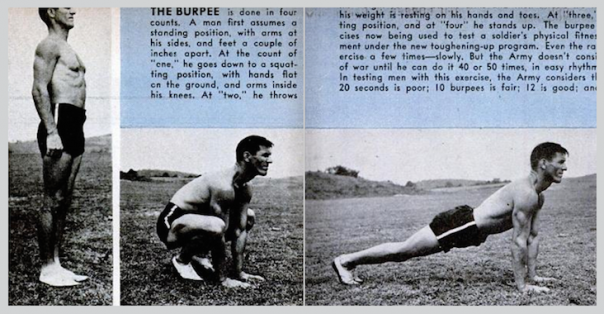Pastor Caitlin Trussell with Augustana Lutheran Church on March 1, 2016
[sermon begins after Bible reading – additional readings at end of sermon; Phil chose the scripture as part of planning his own funeral.]
Luke 2:25-32 Now there was a man in Jerusalem whose name was Simeon;* this man was righteous and devout, looking forward to the consolation of Israel, and the Holy Spirit rested on him. It had been revealed to him by the Holy Spirit that he would not see death before he had seen the Lord’s Messiah.* Guided by the Spirit, Simeon* came into the temple; and when the parents brought in the child Jesus, to do for him what was customary under the law, Simeon* took him in his arms and praised God, saying,
‘Master, now you are dismissing your servant* in peace,
according to your word;
for my eyes have seen your salvation,
which you have prepared in the presence of all peoples,
a light for revelation to the Gentiles
and for glory to your people Israel.’
[sermon begins]
Mary and Joseph are faithful, religious parents. Part of what this means is that they bring Jesus to Jerusalem at the designated time in infancy to present him to the Lord. Reverent and expectant, they likely approach the temple with the kind of anticipation many families approach the baptismal font.[1] It is a big day in the life of this small, holy family. Into the city of Jerusalem they go, winding their way through town and into this holy place. They’re not entirely sure what will happen but there is ritual that can be anticipated. What couldn’t be anticipated is Simeon.
Simeon also winds his way into the temple that day as guided by the Holy Spirit. Likely an old man, “it had been revealed to him that he would not see death before he had seen the Lord’s Messiah.”[2] In his enthusiasm at finally meeting the Messiah, he scoops Jesus away from his mother and into his own arms. That would have been surprising enough for Jesus’ parents. But Simeon adds to the strangeness of the moment by praising God in song:
“Master, now you are dismissing your servant in peace, according to your word; for my eyes have seen your salvation, which you have prepared in the presence of all peoples, a light for revelation to the Gentiles and for glory to your people Israel.”[3]
It’s easy to get swept away into the beauty of Simeon’s Song along with its heady lyrics. He sings about God’s salvation in the presence of all people, Jew and Gentile alike. Simeon’s excitement is infectious. Art work depicting Simeon singing to the baby Jesus is filled with joy, awe and tears. What’s easy to miss is that Simeon is ready to die. This song is entitled the Nunc Dimittis which means in Latin, “Now send away.”[4] It’s a song sung in Communion liturgies and compline prayers at the end of the day. It’s a song of comfort but it is also stark. Simeon is so faithful and so ready to die.
Phil’s choosing of his own funeral scripture gives us a glimpse of his own faithfulness. He chose more scripture than is included today. A bit like he couldn’t stop once he got going on it. The main theme across the scripture he chose is God’s faithfulness. All about who God IS. God’s faithfulness, not our own. And, yet, the many stories I’ve heard about Phil from Kevin and others of you, are a testimony to Phil’s faith.
A favorite story, told by Phil to Kevin, is one from when Phil was very small. Small enough to be lifted onto the counter by his parents. Small enough to lean into them as they leaned toward him so that they could share in their “three-corner kiss.” Phil was raised by faithful parents who shared their love of him and their love of God with him. As a baby he was baptized in the sacrament that washed him in God’s promises.
Phil trusted in God’s promises along the way – as a child of the Depression, as a soldier in the Army, as a business and music major in college, as a husband of sixteen years who lost his wife to cancer, and as a choir member totaling 64 years of his life. God’s faithful promises were lived in and by Phil as he became a Stephen Minister as well as a long-time home communion visitor – taking hope and forgiveness through the sacrament of Holy Communion to people who could no longer get to church. Along with these ministries, many of you shared with me that Phil would call you on your birthday. Kevin told me that Phil would take the birthday lists from the church newsletter so that he could track and celebrate your birthdays with a phone call. Such a gift.
Ultimately, Phil’s faith was a gift. A gift to him from God that continued to give to the people around him. Living his gift of faith came with the clarity about his own imperfections and the limits of his humanity. He worshiped Sunday after Sunday with the awareness and humility of someone in need of a savior. He worshiped to hear Jesus’ promise of forgiveness and love again…and again…and again. In the end, Phil was ready. His body and mind as fragile as his tattered, well-worn Bible with the pages falling out.
As Phil and his parents shared their “three-corner kiss,” they shared the love of God the Father, God the Son, and God the Holy Spirit through their love for each other. As Simeon shared the joy of God’s salvation, he sang praises to God, holding the baby Jesus, guided by the Holy Spirit. The testimony of these two faithful people was separated by millennia and also separated by Jesus’ death on a cross. In the waters of baptism, God’s promises claim Phil through that cross. God’s promises also claim you. At the beginning of the service we gave a Thanksgiving for Baptism. Hear those words again:
When we were baptized in Christ Jesus, we were baptized into his death. We were buried therefore with him by baptism into death, so that as Christ was raised from the dead by the glory of the Father, we too might live a new life. For if we have been united with him in a death like his, we shall certainly be united with him in a resurrection like his.[5]
This is God’s promise for Phil as his baptismal journey on earth ends with his death and he is received into the peace of a loving God. And this is God’s promise for you. You are now dismissed in peace, according to the Word of God.[6] Amen.
[1] David Lose. “The Oddest Christmas Carol” on Luke 2:25-38 for Working Preacher on December 25, 2011. https://www.workingpreacher.org/craft.aspx?post=1510
[2] Luke 2:26
[3] Luke 2:29
[4] Lose, ibid.
[5] Evangelical Lutheran Worship (hymnal). Life Passages: Funeral. (Minneapolis: Augsburg Fortress, 2006), 280.
[6] Luke 2:29 – Simeon sings, “Master, now you are dismissing your servant in peace, according to your word…”
Isaiah 12:2-6 Surely God is my salvation; I will trust, and will not be afraid, for the Lord God is my strength and my might; he has become my salvation. 3With joy you will draw water from the wells of salvation.
4And you will say in that day: Give thanks to the Lord, call on his name; make known his deeds among the nations; proclaim that his name is exalted. 5Sing praises to the Lord, for he has done gloriously; let this be known in all the earth. 6Shout aloud and sing for joy, O royal Zion, for great in your midst is the Holy One of Israel.
Psalm 139:1-10
1 O Lord, you have searched me and known me.
2 You know when I sit down and when I rise up;
you discern my thoughts from far away.
3 You search out my path and my lying down,
and are acquainted with all my ways.
4 Even before a word is on my tongue,
O Lord, you know it completely.
5 You hem me in, behind and before,
and lay your hand upon me.
6 Such knowledge is too wonderful for me;
it is so high that I cannot attain it.
7 Where can I go from your spirit?
Or where can I flee from your presence?
8 If I ascend to heaven, you are there;
if I make my bed in Sheol, you are there.
9 If I take the wings of the morning
and settle at the farthest limits of the sea,
10 even there your hand shall lead me,
and your right hand shall hold me fast.
Lamentations 3:21-26
But this I call to mind,
and therefore I have hope:
The steadfast love of the Lord never ceases,
his mercies never come to an end;
they are new every morning;
great is your faithfulness.
‘The Lord is my portion,’ says my soul,
‘therefore I will hope in him.’
The Lord is good to those who wait for him,
to the soul that seeks him.
It is good that one should wait quietly
for the salvation of the Lord.


